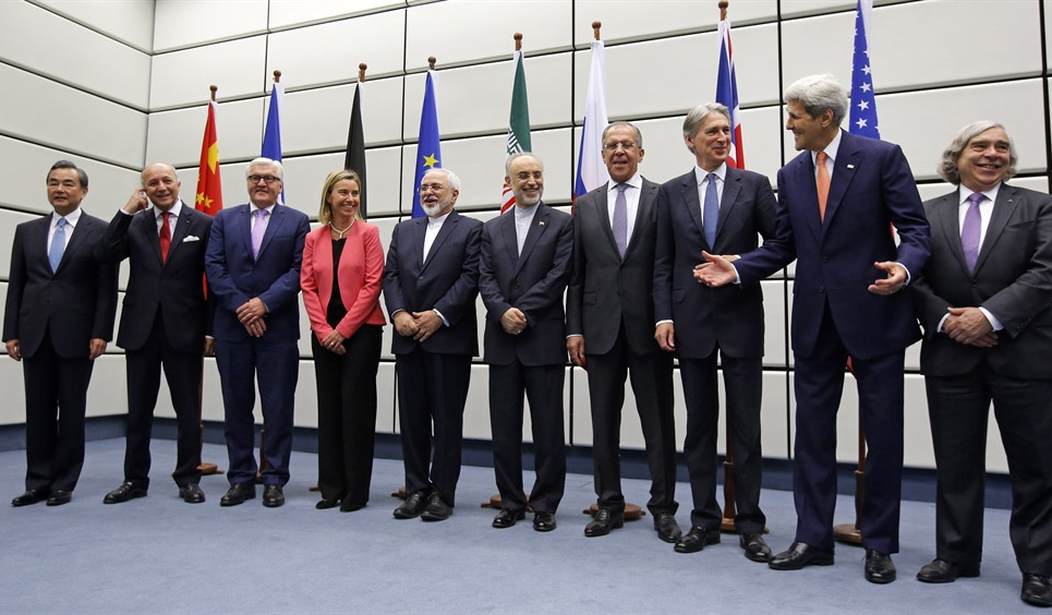PARIS -- The five permanent members of the United Nations Security Council plus Germany have struck a deal with Iran to lift economic sanctions and open the country back up for business in exchange for limitations on Iran's nuclear program. While skepticism may remain about Iran's willingness to follow through on the agreement, Western nations nevertheless must quickly and decisively shift from a conventional-security mindset to one of economic security.
Economic security is synonymous with national security -- more so now than ever before in this era of perpetual fiscal crisis. That's why classified intelligence documents and intercepts leaked by Edward Snowden and published by WikiLeaks offer examples of nation-states spying on each other's economic affairs.
The Iranian situation is unique. Try to recall the last time that a significant nation-state economy opened up to the West for business. The first one that comes to mind is the Soviet Union following its dissolution in 1991. Remember how Russians were going to fall in love with Hollywood and Levis and become overnight entrepreneurs? Yeah, well, some Russians became entrepreneurs, all right. They're called "oligarchs." The Kremlin divided up the people's assets, handed them out to a few cronies (some of whom soon went overseas to live the good life), and we in the West cheered that Russia had embraced capitalism. As long as Russia was no longer seen as a military threat, the West didn't seem to care that this version of capitalism was nothing more than lip service.
Cereal boxes have more detailed instructions for their enclosed toys than the Russians were ever given for their newfound capitalism. Nearly 24 years later, Russian President Vladimir Putin is still trying to steer Russia's fledgling version of capitalism off the rumble strips.
That's the mistake the West is in danger of making with Iran, as it has made with so many other post-conflict economies.
The nuclear deal with Iran represents a window for the West to export capitalism -- not the crony capitalism of Wall Street, please, but true capitalism. Western governments should make it as easy as possible for entrepreneurs to gain access to the Iranian market, but those governments should also help instill security through measurable economic engagement and profit. That means opening up Iran not just to big corporations and their lobbyists, but to the individual capitalist who wants to venture out into the new frontier in search of opportunities, Gold Rush-style.
Despite Western governments knowing full well that economic security is critical for long-term stability, it's always treated as secondary to military operations -- as something that only happens once every possible dollar has been wrung out on bullets and bombs. Granted, military action fuels the economy, too -- but not forever. Just ask Russia about how relying too heavily on a militaristic economy worked out for them.
The West has been operating on a hot-conflict footing for so long, it's way overdue for a massive shift in focus away from conventional (and often redundant) security and toward stability through foreign economic engagement.
Consider the recent examples of Iraq, Afghanistan and Libya. We have gone into these countries on a military basis and have failed to transition to economic stability after investing billions of dollars in warfare.
In the post-9/11 era, scores of "counterterrorism" and "security" experts have come out of the woodwork and flooded the private sector. This period has produced far fewer experts analyzing post-conflict or emerging markets for economic opportunity, regulatory harmonization and strategic partnerships.
Part of this can be blamed on the system itself, whereby nation-states' development funding is largely laundered through bloated bureaucracies and world governing bodies, virtually ensuring that by the time these funds trickle down to the people who are rolling up their sleeves and doing the groundwork, there isn't much left. This is how the West ends up with a problem like Greece, perpetually broke to the point of being unable to pay even the interest on its debt yet still receiving endless "assistance."
Imagine if most of the time and effort being spent on what has thus far been an unsuccessful fight against overseas terrorism were applied to concocting ways to engage emerging post-conflict economies.
Maybe one of the many candidates running for the U.S presidency and promising economic growth can figure out how to lead this change of direction in short order. Preferably before assorted leeches and cronies attach themselves to the resulting cash flow.
Iran Deal Must Begin Western Shift Toward Economic-security Mindset
The opinions expressed by columnists are their own and do not necessarily represent the views of Townhall.com.

Advertisement
Recommended
Trending on Townhall Videos
Advertisement
Advertisement
Advertisement
























Join the conversation as a VIP Member